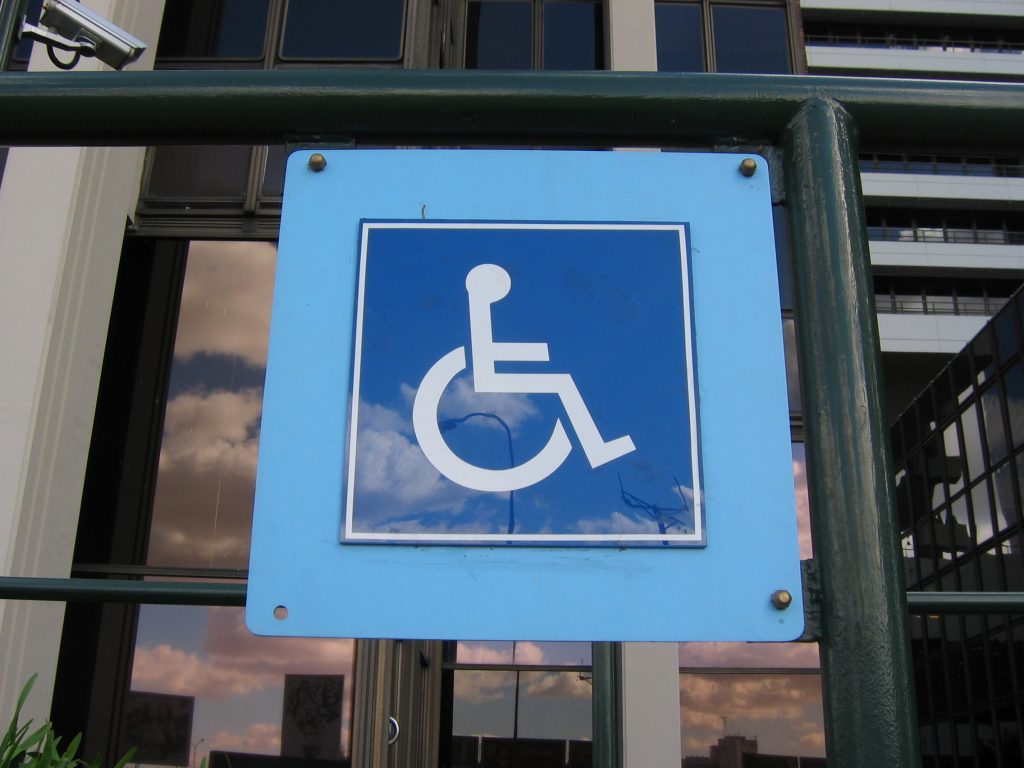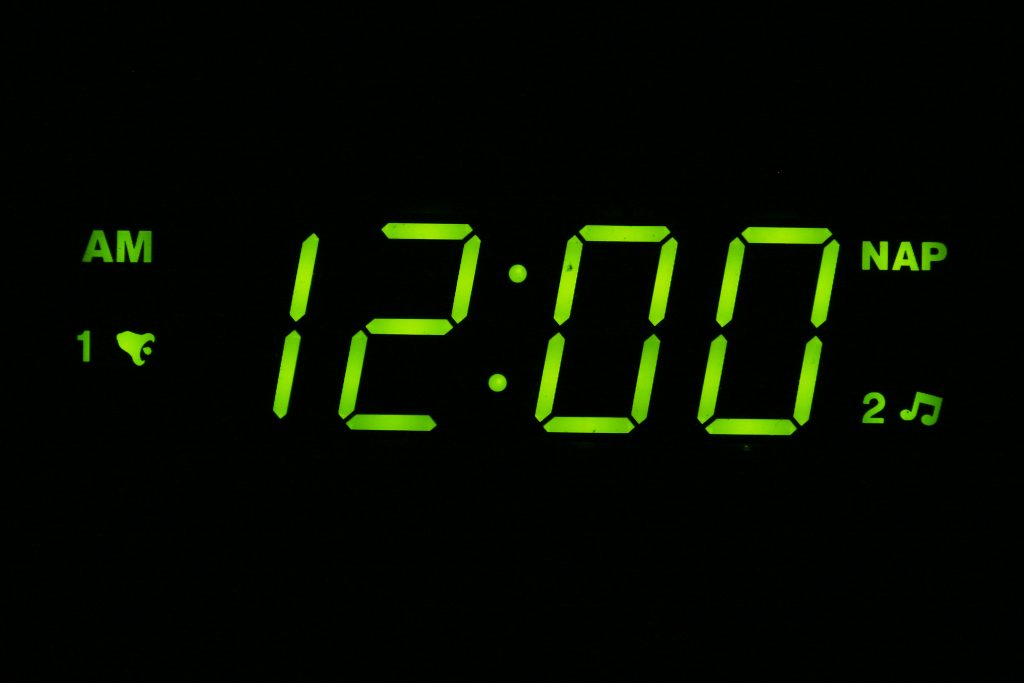 The devil is in the details is a well-known idiom that holds true in this case. It was only upon a close examination of the factual details set out in the trial record that the Louisiana Fourth Circuit Court of Appeal ruled in the plaintiff’s favor. In the case, the Fourth Circuit discusses the two-step process used to determine if the lower court correctly calculated its award of special damages.
The devil is in the details is a well-known idiom that holds true in this case. It was only upon a close examination of the factual details set out in the trial record that the Louisiana Fourth Circuit Court of Appeal ruled in the plaintiff’s favor. In the case, the Fourth Circuit discusses the two-step process used to determine if the lower court correctly calculated its award of special damages.
Mr. Rosonette was injured while sitting in his wheelchair on a bus driven by Ms. Edith Cantrell, who failed to “use restraints” to secure the chair. The Rosonettes filed a lawsuit against her and St. Bernard to recover damages. The District Court granted $10,155.76 for special and general damages to Mr. Rosonette and denied Mrs. Ronsonette’s loss of consortium claim. They filed an appeal. Regarding damages, the Ronsonettes’ main argument was that in not granting the $26,077.03 cost of medical expenses the court abused its discretion (i.e. failed to properly apply the law or based its decision on an incorrect substantial fact). They argued there was no evidence in the court record to support the ruling. They also claimed St. Bernard failed to provide evidence proving the injuries suffered were not a result of the accident.
The District Court reasoned that Mr. Rosonette was not credible in communicating the extent of his injuries. In reviewing the case, the Court of Appeal did not determine the argument on credibility to be important because the District Court had already conceded that Mr. Rosonette sustained minimal injury as a result of the accident and did not challenge his trial testimony.
 Louisiana Personal Injury Lawyer Blog
Louisiana Personal Injury Lawyer Blog


 A jury’s verdicts can an often depend upon which party it believes the most. In a jury trial, the jury is indeed the trier of fact. It hears the evidence and makes findings of fact based on the credibility of witnesses and other evidence presented at trial. In a case out of Gonzales, Louisiana the verdict hinged on whether the Plaintiff, Mindy Weiley, appeared credible to the jury or whether she seemed to be a liar.
A jury’s verdicts can an often depend upon which party it believes the most. In a jury trial, the jury is indeed the trier of fact. It hears the evidence and makes findings of fact based on the credibility of witnesses and other evidence presented at trial. In a case out of Gonzales, Louisiana the verdict hinged on whether the Plaintiff, Mindy Weiley, appeared credible to the jury or whether she seemed to be a liar.  Excessive police force has become a nightly topic in the American news cycle. Ranging from discrimination to life-and-death situations, no one wants to be on the receiving end of mistreatment. In a recent case, a Louisiana woman experienced what she felt was excessive force by law enforcement officers in her own home. The Court of Appeal, however, disagreed. In its decision, the Court of Appeal discussed the burden of proof necessary to succeed on civil rights claims against government officers.
Excessive police force has become a nightly topic in the American news cycle. Ranging from discrimination to life-and-death situations, no one wants to be on the receiving end of mistreatment. In a recent case, a Louisiana woman experienced what she felt was excessive force by law enforcement officers in her own home. The Court of Appeal, however, disagreed. In its decision, the Court of Appeal discussed the burden of proof necessary to succeed on civil rights claims against government officers. In Louisiana, the law benefits those who take timely action in pursuit of their claims or defense. It can also punish the untimely. In a very unfortunate case, the Plaintiff, a grieving widow, missed an opportunity to overturn an adverse trial court decision. In the case, the Fourth Circuit Court of Appeal discusses the procedural avenues of supervisory review available to litigants, highlighting the need to be diligent in meeting procedural requirements.
In Louisiana, the law benefits those who take timely action in pursuit of their claims or defense. It can also punish the untimely. In a very unfortunate case, the Plaintiff, a grieving widow, missed an opportunity to overturn an adverse trial court decision. In the case, the Fourth Circuit Court of Appeal discusses the procedural avenues of supervisory review available to litigants, highlighting the need to be diligent in meeting procedural requirements. If you are injured at work, it is imperative that you follow the appropriate procedures under workers’ compensation law to ensure that you are fully and fairly compensated for your injuries. A failure to properly report or address your injuries can result in a lesser payment or no payment at all. It is also important to keep your place of employment apprised of your injuries and treatment, and written records of your contact, so that if it becomes necessary to bring an action against your employer you have sufficient evidence to support your position. A recent case of the Louisiana Third Circuit Court of Appeal is illustrative.
If you are injured at work, it is imperative that you follow the appropriate procedures under workers’ compensation law to ensure that you are fully and fairly compensated for your injuries. A failure to properly report or address your injuries can result in a lesser payment or no payment at all. It is also important to keep your place of employment apprised of your injuries and treatment, and written records of your contact, so that if it becomes necessary to bring an action against your employer you have sufficient evidence to support your position. A recent case of the Louisiana Third Circuit Court of Appeal is illustrative. In Louisiana, when an employee suffers an on-the-job injury, the employer may be held liable. This can easily end the initial romantic period of the employment, now that the employee’s interests are at odds with the employer’s. The employer considers that it now has to take care of a non-productive employee, hurting the business’s bottom line. On the other hand, the employee argues that she should be compensated for her work-related injuries considering all the labor she put into the company, contributing to its profits. The law takes into account and draws a delicate balance between these varying interests. It goes without saying that it is important for both employees and employers to be aware of their rights under workers’ compensation law. Illustrating this point, the Louisiana Third Circuit Court of Appeal was recently called upon to decide whether a potentially expensive surgical procedure made necessary by a work-related injury should or should not be granted.
In Louisiana, when an employee suffers an on-the-job injury, the employer may be held liable. This can easily end the initial romantic period of the employment, now that the employee’s interests are at odds with the employer’s. The employer considers that it now has to take care of a non-productive employee, hurting the business’s bottom line. On the other hand, the employee argues that she should be compensated for her work-related injuries considering all the labor she put into the company, contributing to its profits. The law takes into account and draws a delicate balance between these varying interests. It goes without saying that it is important for both employees and employers to be aware of their rights under workers’ compensation law. Illustrating this point, the Louisiana Third Circuit Court of Appeal was recently called upon to decide whether a potentially expensive surgical procedure made necessary by a work-related injury should or should not be granted. When an accident occurs, it’s often difficult to determine what actually happened until the aftermath, but in the justice system, piecing a puzzle together and drawing conclusions based on little remaining evidence rarely constitutes enough of a basis to file a lawsuit. As the court said in the case of Benjamin Tomaso when he attempted to file a lawsuit against Home Depot, “[s]peculation as to what caused an accident cannot supply the factual support necessary to show that a plaintiff would be able to meet his evidentiary burden of proof at trial.”
When an accident occurs, it’s often difficult to determine what actually happened until the aftermath, but in the justice system, piecing a puzzle together and drawing conclusions based on little remaining evidence rarely constitutes enough of a basis to file a lawsuit. As the court said in the case of Benjamin Tomaso when he attempted to file a lawsuit against Home Depot, “[s]peculation as to what caused an accident cannot supply the factual support necessary to show that a plaintiff would be able to meet his evidentiary burden of proof at trial.”  Do you know your constitutional rights? In 2014 one-third of Americans were unaware of their First Amendment rights according to a Newseum Institute survey. This is an alarming truth that we, as citizens, must face. Here are some questions I pose to you: Do you know your Fourth Amendment rights? Can a law enforcement officer arrest someone without probable cause? What is probable cause? What is qualified immunity? A recent
Do you know your constitutional rights? In 2014 one-third of Americans were unaware of their First Amendment rights according to a Newseum Institute survey. This is an alarming truth that we, as citizens, must face. Here are some questions I pose to you: Do you know your Fourth Amendment rights? Can a law enforcement officer arrest someone without probable cause? What is probable cause? What is qualified immunity? A recent When asserting a claim under constitutional law, the moving party must meet a specific standard that is easily navigated by an attorney. As one Louisiana man recently learned, without the help of a lawyer, navigating these pleading standards can be difficult and detrimental to the outcome of your case.
When asserting a claim under constitutional law, the moving party must meet a specific standard that is easily navigated by an attorney. As one Louisiana man recently learned, without the help of a lawyer, navigating these pleading standards can be difficult and detrimental to the outcome of your case. A unique feature of our American federal system is the separate yet intertwined system of state and federal courts. Sometimes a dispute may begin in a state court and end up in federal court. And sometimes, there may end up being parallel proceedings in both the state and federal systems. There are limits, however. A federal court can decline to hear an action if there is a parallel proceeding in the state court system. Recently, the Fifth Circuit Court of appeal was called upon to determine whether a district court erred when it declined to hear a declaratory action and related counterclaims.
A unique feature of our American federal system is the separate yet intertwined system of state and federal courts. Sometimes a dispute may begin in a state court and end up in federal court. And sometimes, there may end up being parallel proceedings in both the state and federal systems. There are limits, however. A federal court can decline to hear an action if there is a parallel proceeding in the state court system. Recently, the Fifth Circuit Court of appeal was called upon to determine whether a district court erred when it declined to hear a declaratory action and related counterclaims.